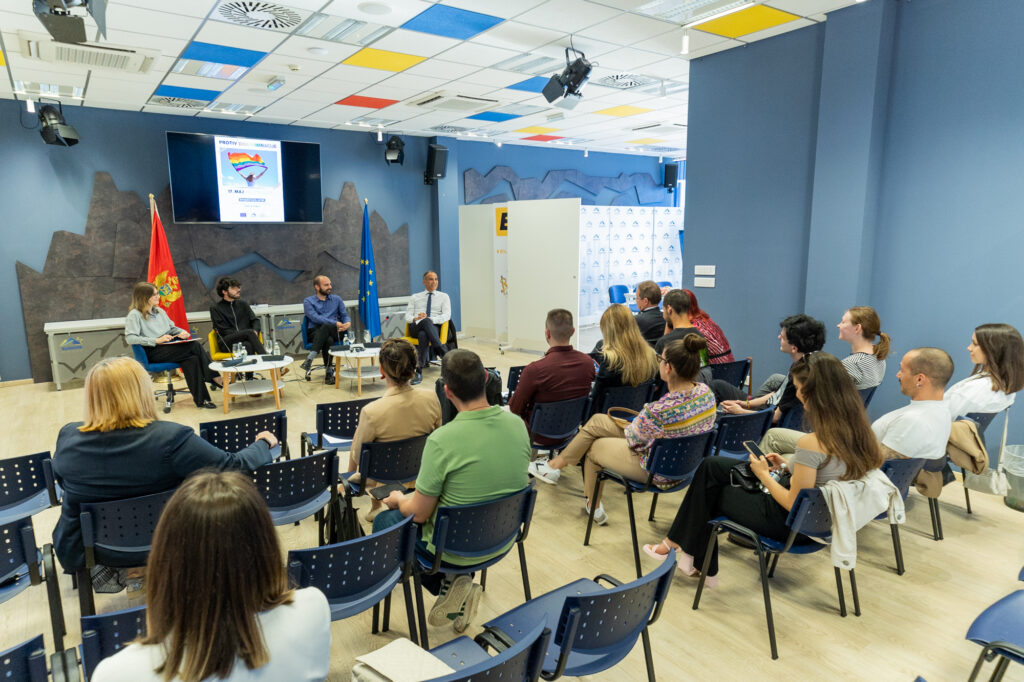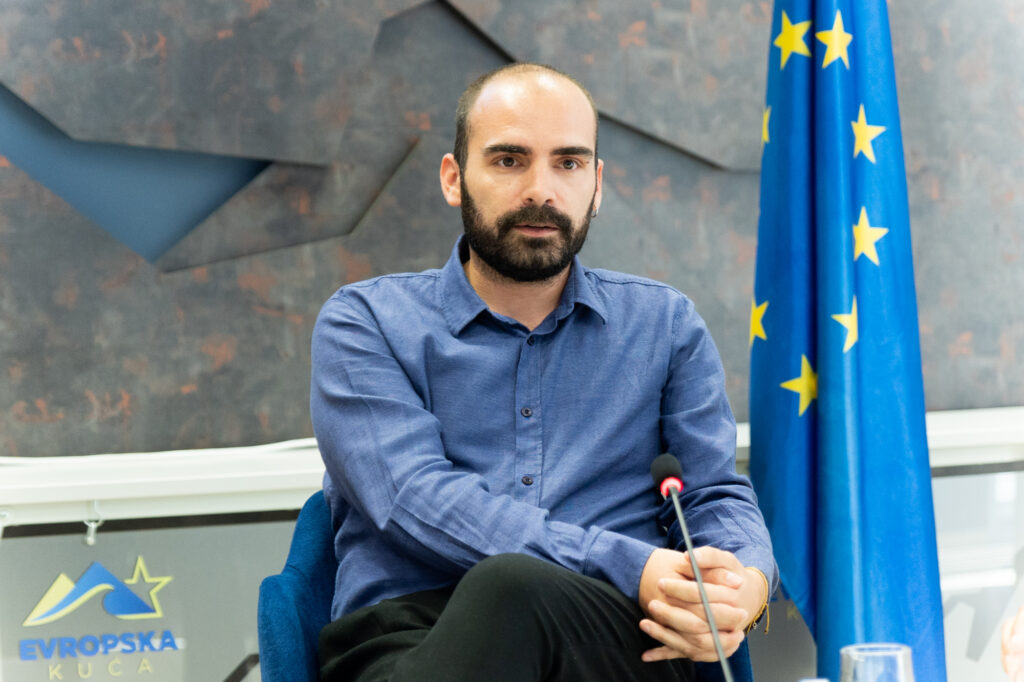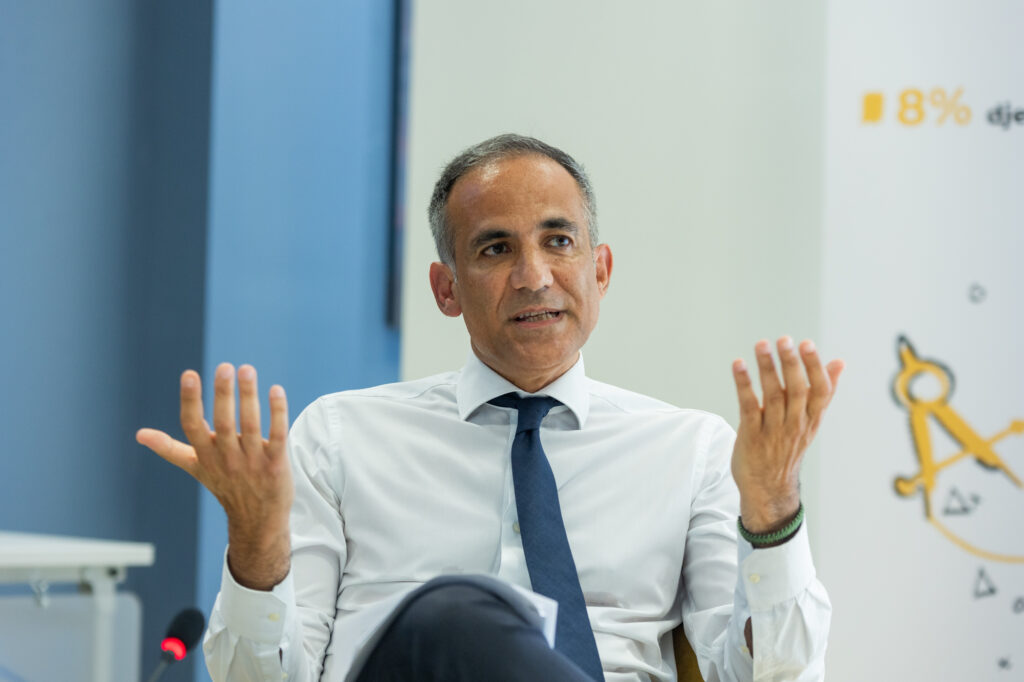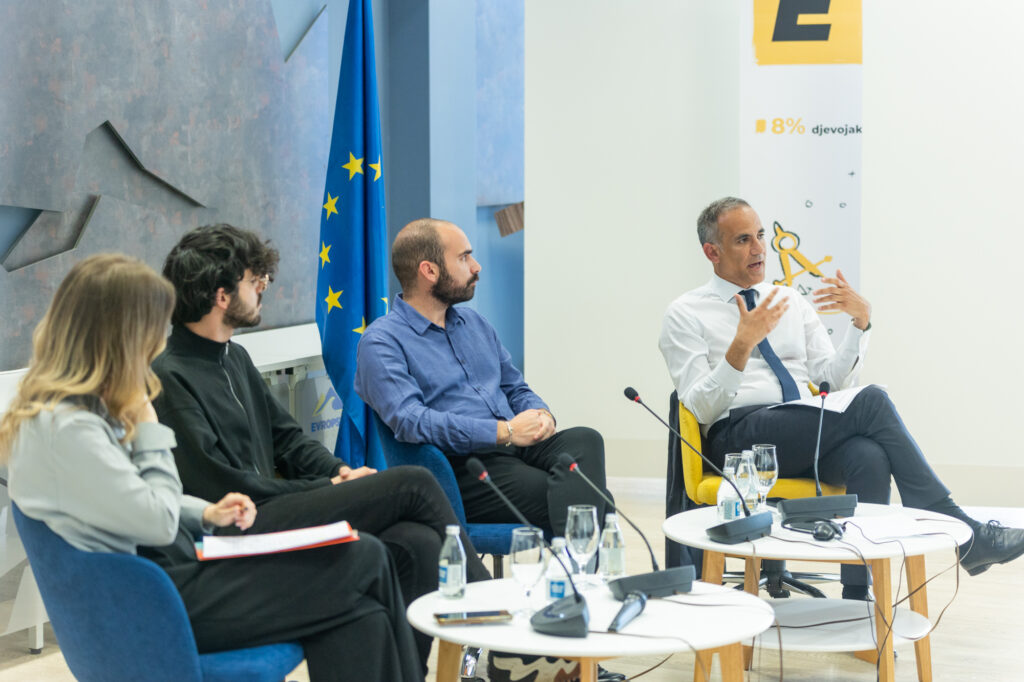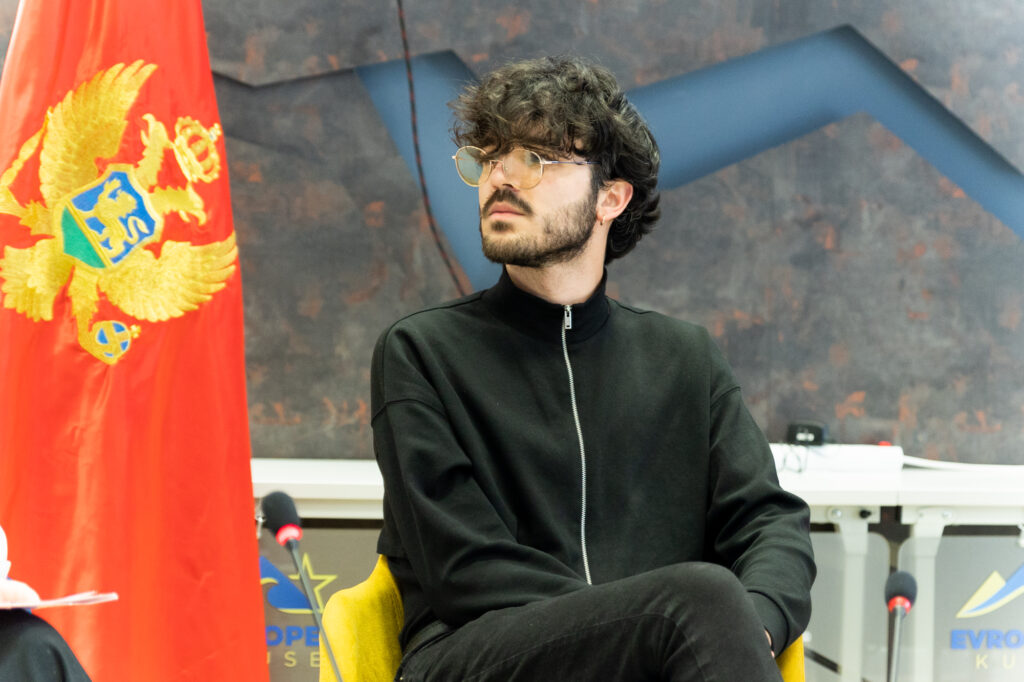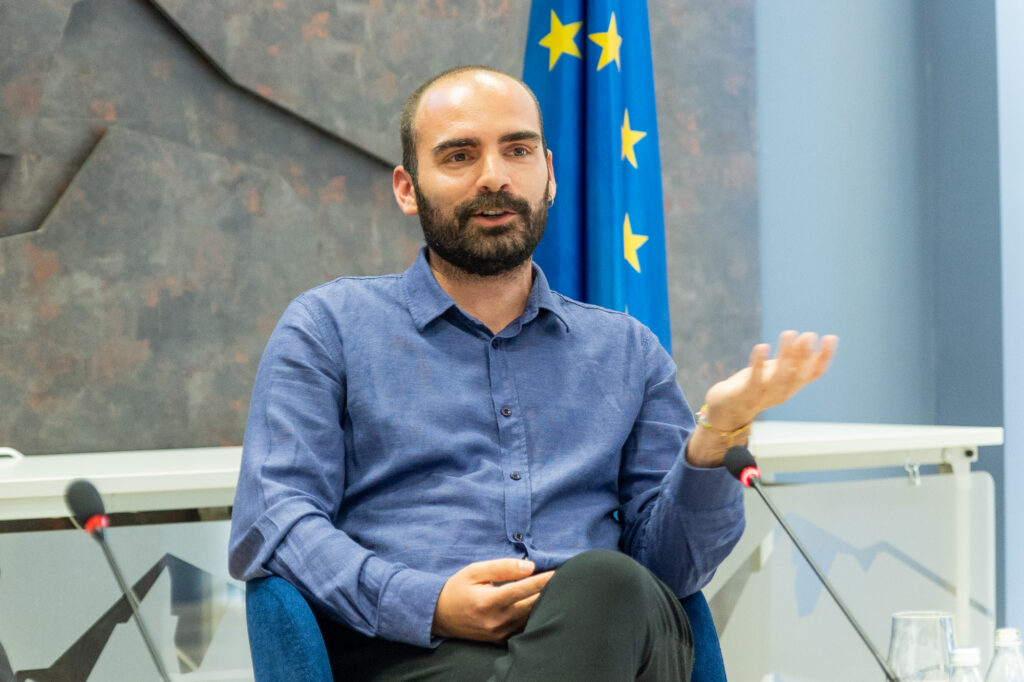The Importance of Inclusion and Solidarity in the Fight against Homophobia, Transphobia and Biphobia
How it feels like being an LGBTIQ person in Montenegro? What is the European Union doing to support and improve LGBTIQ rights in Montenegro? What is the best way to educate people about the importance of respecting different sexual orientations and gender identities? These are just some of the topics discussed in the panel discussion “The Importance of Inclusion and Solidarity in the Fight against Homophobia, Transphobia, and Biphobia” at the Europe House.
Panellists spoke about the challenges LGBTIQ persons in Montenegro face. They highlighted the importance of education and media support for LGBTIQ activists and the non-government sector. “The freedoms that every person desires for themselves have not yet been achieved, but we can say that the situation is improving. Now we can talk a little more freely and a little more openly,” stated Miloš Knežević from Queer Mne when asked about being gay in Montenegro.
“The EU remains one of the top donors worldwide and in Montenegro to LGBTIQ civil society organisations. We support the LGBTIQ human rights defenders through the European Instrument for Democracy and Human Rights. Over the last decades, we have supported many projects and grass root activities, and together, we have come a really long way: from the denial that the LGBTIQ community even exists to the adoption of the Law on life partnership of same-sex persons in 2020,” said Riccardo Serri, the Deputy Head of the Delegation of European Union to Montenegro while referring to the activities conducted by the European Union on improving the status of LGBTIQ persons in Montenegro.
He further says that it has been a long process that brought together national and local authorities and civil society. It is the process that the EU has been proudly supporting from the beginning and will continue supporting. While some by-laws have been amended (on compulsory health insurance, social and child protection, and personal income tax, by adding a provision recognising same-sex partnerships), progress on LGBTIQ legislation has been very slow.”
“We have been working with the Ministry of Human and Minority Rights on drafting the anti-discrimination law. This law is in its final stages of preparation,” Serri said and added that the EU was also working with the Ministry to start drafting the Law on legal gender recognition.
“Wherever they are, whether at home or in school, it is important to inspire tolerance and respect for diversity in young people, whether it is respect for ethnic, religious, or other minorities, sexual diversity, or diversity of gender identity,” stated LGBTIQ activist and Young European Ambassador Vojin Ćetković.
Miloš Knežević believes that education about LGBTIQ persons and their human rights should start in primary school.
“We were fortunate to have the Civic Education program included in the formal educational system a few years ago. It was an excellent idea in principle, but it had its flaws. Primarily, these shortcomings relate to the teachers who deliver the Civic Education program and the training they have undergone” added Knežević.
He concluded, “When we look back, we didn’t have anything before, and then we got such a program that, through its curriculum, taught tolerance, understanding, and respect for human and civil rights in general. The shortcoming was in the teachers themselves, who were not sufficiently educated on working and having an open conversation with young people.”
After the panel, the attendees had the opportunity to watch the film “Dating Amber.” This film is set in Ireland in 1995 and follows the story of Eddie and Amber, teenagers who enter fake relationships in order to conceal their homosexuality from an environment that does not accept such sexual orientation. Through their shared journey, they discover their identity, friendship, and the courage to be themselves. The film explores themes of sexual orientation, acceptance, and coming of age with humour, warmth, and emotional depth.
The International Day Against Homophobia, Transphobia, and Biphobia was marked at Europe House with a panel discussion. This day is commemorated every year as a milestone in the fight for equality and dignity since 1990, when the World Health Organization recognised that homosexuality is not a mental disorder.

